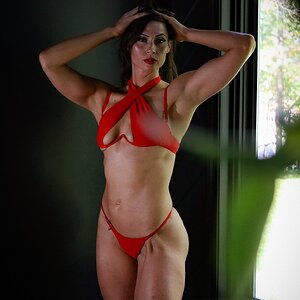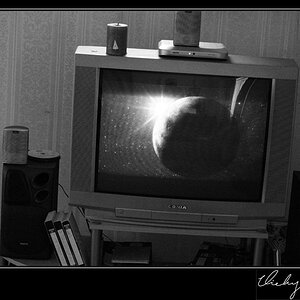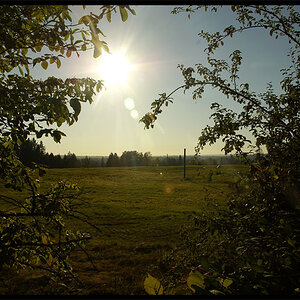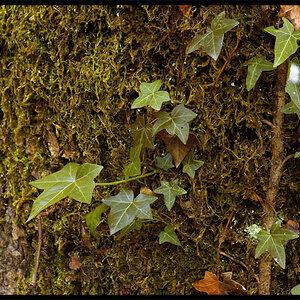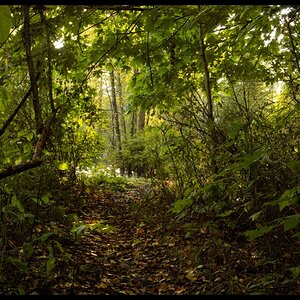Navigation
Install the app
How to install the app on iOS
Follow along with the video below to see how to install our site as a web app on your home screen.

Note: This feature currently requires accessing the site using the built-in Safari browser.
More options
You are using an out of date browser. It may not display this or other websites correctly.
You should upgrade or use an alternative browser.
You should upgrade or use an alternative browser.
Grammar lesson
- Thread starter Nagala
- Start date
Sharkbait
TPF Noob!
- Joined
- Nov 4, 2003
- Messages
- 2,403
- Reaction score
- 18
- Location
- Indianapolis, IN
- Website
- www.whitesharkphoto.com
danalec99 said:Where did "ain't" come from?
I mean, the root word(s). Like for example, "wanna" > "want to".
Nonstandard
1. Contraction of am not.
2. Used also as a contraction for are not, is not, has not, and have not.
Usage Note: Ain't has a long history of controversy. It first appeared in 1778, evolving from an earlier an't, which arose almost a century earlier as a contraction of are not and am not. In fact, ain't arose at the tail end of an era that saw the introduction of a number of our most common contractions, including don't and won't. But while don't and won't eventually became accepted at all levels of speech and writing, ain't was to receive a barrage of criticism in the 19th century for having no set sequence of words from which it can be contracted and for being a vulgarism, that is, a term used by the lower classes, although an't at least had been originally used by the upper classes as well. At the same time ain't's uses were multiplying to include has not, have not, and is not, by influence of forms like ha'n't and i'n't. It may be that these extended uses helped fuel the negative reaction. Whatever the case, criticism of ain't by usage commentators and teachers has not subsided, and the use of ain't is often regarded as a sign of ignorance. ·But despite all the attempts to ban it, ain't continues to enjoy extensive use in speech. Even educated and upper-class speakers see no substitute in folksy expressions such as Say it ain't so and You ain't seen nothin' yet. ·The stigmatization of ain't leaves us with no happy alternative for use in first-person questions. The widely used aren't I? though illogical, was found acceptable for use in speech by a majority of the Usage Panel in an earlier survey, but in writing there is no acceptable substitute for the stilted am I not?
Geronimo
No longer a newbie, moving up!
- Joined
- Jun 8, 2003
- Messages
- 1,329
- Reaction score
- 3
- Location
- Next to the point of no return.
- Can others edit my Photos
- Photos NOT OK to edit
Fail English that is unimpossible.
Darfion
Soapbox guru...
- Joined
- Jun 13, 2003
- Messages
- 1,498
- Reaction score
- 14
- Location
- Wigan, Lancashire
- Website
- www.darfion.co.uk
- Can others edit my Photos
- Photos OK to edit
I don't not never use bad grammer 
danalec99
TPF Noob!
- Joined
- Mar 14, 2004
- Messages
- 8,345
- Reaction score
- 69
- Can others edit my Photos
- Photos NOT OK to edit
Wow... never knew it dated back to the 1700s. :shock:Shark said:danalec99 said:Where did "ain't" come from?
I mean, the root word(s). Like for example, "wanna" > "want to".
Nonstandard
1. Contraction of am not.
2. Used also as a contraction for are not, is not, has not, and have not.
Usage Note: Ain't has a long history of controversy. It first appeared in 1778, evolving from an earlier an't, which arose almost a century earlier as a contraction of are not and am not. In fact, ain't arose at the tail end of an era that saw the introduction of a number of our most common contractions, including don't and won't. But while don't and won't eventually became accepted at all levels of speech and writing, ain't was to receive a barrage of criticism in the 19th century for having no set sequence of words from which it can be contracted and for being a vulgarism, that is, a term used by the lower classes, although an't at least had been originally used by the upper classes as well. At the same time ain't's uses were multiplying to include has not, have not, and is not, by influence of forms like ha'n't and i'n't. It may be that these extended uses helped fuel the negative reaction. Whatever the case, criticism of ain't by usage commentators and teachers has not subsided, and the use of ain't is often regarded as a sign of ignorance. ·But despite all the attempts to ban it, ain't continues to enjoy extensive use in speech. Even educated and upper-class speakers see no substitute in folksy expressions such as Say it ain't so and You ain't seen nothin' yet. ·The stigmatization of ain't leaves us with no happy alternative for use in first-person questions. The widely used aren't I? though illogical, was found acceptable for use in speech by a majority of the Usage Panel in an earlier survey, but in writing there is no acceptable substitute for the stilted am I not?
John, do you (the English Teacher) use 'Ain't' during your discourse with your students?
- Joined
- Feb 5, 2004
- Messages
- 21,168
- Reaction score
- 110
- Location
- North Central Illinois
- Website
- corryttc.blogspot.com
- Can others edit my Photos
- Photos NOT OK to edit
How many people here do use the word ain't?? I do.
- Joined
- Sep 2, 2003
- Messages
- 34,539
- Reaction score
- 7,563
- Location
- In the mental ward of this forum
- Can others edit my Photos
- Photos NOT OK to edit
core_17 said:How many people here do use the word ain't?? I do.
That's personal, so I ain't gonna answer. :green to:
mentos_007
The Freshmaker!
- Joined
- Jun 29, 2004
- Messages
- 9,324
- Reaction score
- 102
- Location
- Poland, Sz-n
- Can others edit my Photos
- Photos OK to edit
I ain't gonna answer too  too complicated your grammar is
too complicated your grammar is 
M
MDowdey
Guest
mentos_007 said:I ain't gonna answer tootoo complicated your grammar is




i aint sayin nuthin...
Sharkbait
TPF Noob!
- Joined
- Nov 4, 2003
- Messages
- 2,403
- Reaction score
- 18
- Location
- Indianapolis, IN
- Website
- www.whitesharkphoto.com
danalec99 said:John, do you (the English Teacher) use 'Ain't' during your discourse with your students?
Never. Don't get me wrong, I don't go around speaking in Proper Written English all the time, but I avoid most slang, even in everyday speech, and especially around the kids.
danalec99
TPF Noob!
- Joined
- Mar 14, 2004
- Messages
- 8,345
- Reaction score
- 69
- Can others edit my Photos
- Photos NOT OK to edit
Shark said:Never. Don't get me wrong, I don't go around speaking in Proper Written English all the time, but I avoid most slang, even in everyday speech, and especially around the kids.danalec99 said:John, do you (the English Teacher) use 'Ain't' during your discourse with your students?
I figured
Sharkbait
TPF Noob!
- Joined
- Nov 4, 2003
- Messages
- 2,403
- Reaction score
- 18
- Location
- Indianapolis, IN
- Website
- www.whitesharkphoto.com
Yeah yeah yeah.danalec99 said:Shark said:Never. Don't get me wrong, I don't go around speaking in Proper Written English all the time, but I avoid most slang, even in everyday speech, and especially around the kids.danalec99 said:John, do you (the English Teacher) use 'Ain't' during your discourse with your students?
I figured.
danalec99
TPF Noob!
- Joined
- Mar 14, 2004
- Messages
- 8,345
- Reaction score
- 69
- Can others edit my Photos
- Photos NOT OK to edit
People who were born to an English speaking parents/American schooling would have bad grammar? :scratch:Shark said:Yeah yeah yeah.danalec99 said:Shark said:Never. Don't get me wrong, I don't go around speaking in Proper Written English all the time, but I avoid most slang, even in everyday speech, and especially around the kids.danalec99 said:John, do you (the English Teacher) use 'Ain't' during your discourse with your students?
I figured.

I don't sound like an English teacher when I talk, though. And I never correct people's grammar when I'm speaking to them.
Sharkbait
TPF Noob!
- Joined
- Nov 4, 2003
- Messages
- 2,403
- Reaction score
- 18
- Location
- Indianapolis, IN
- Website
- www.whitesharkphoto.com
danalec99 said:People who were born to an English speaking parents/American schooling would have bad grammar? :scratch:Shark said:Yeah yeah yeah.danalec99 said:Shark said:Never. Don't get me wrong, I don't go around speaking in Proper Written English all the time, but I avoid most slang, even in everyday speech, and especially around the kids.danalec99 said:John, do you (the English Teacher) use 'Ain't' during your discourse with your students?
I figured.

I don't sound like an English teacher when I talk, though. And I never correct people's grammar when I'm speaking to them.
You have no idea how badly native English speakers can butcher this language. In school, students study English for all 13 years of their education, and still many have horrendous grammar afterwards. There are adults that make 4th grade grammar mistakes.
Similar threads
- Replies
- 6
- Views
- 2K
- Replies
- 46
- Views
- 11K
New Topics
-
-
-
-
Instax Wide 300 Lens cover broken, not shutting properly
- Latest: PianoMan343

